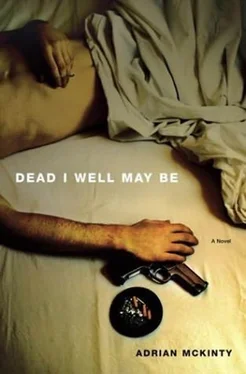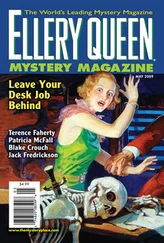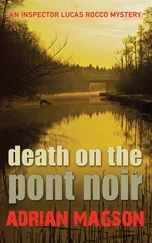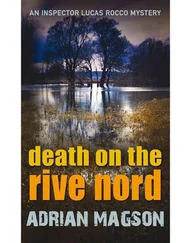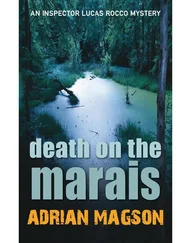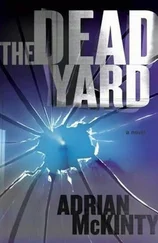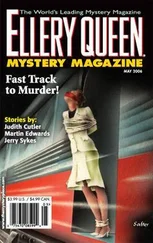I turn from the river and walk back to the apartment on 181st. I nod to the super and go up the five flights. The lift works here, but I need the walk. I go to the big living room and sit.
And stare. Still the Hudson and the George Washington Bridge. Dust on the window ledge and on the hardwood floor. Pigeons and assorted flocks following the garbage barge.
The windows are up, and everything is in silence.
I sit there cross-legged on the futon. My mind is emptied of thoughts, and I breathe and exist. Time flows on and around me, pouring people over the bridge into stores and offices. They come over in the early morning and the lights are on in their cars and they leave in the evening and the lights are on again. Time flows, and I sit and breathe and exist without it for an age.
I remember a conversation I had with Scotchy long ago about the ethics of murder. Scotchy was a guy who talked big, and he claimed to have killed a man in South Armagh. The way he bragged about it to Andy and Fergal, I began after a time to believe that he’d really done it. It was a shoot-out, he claimed with shiftiness, but I knew it was something else. Cold-blooded: a capture or an assassination. He’d been part of a cell, maybe not the shooter, but part of it. That night after we left Dermot’s, neither of us felt troubled, it was them or us, that was not a problem. That wasn’t where the difficulty came from.
Scotchy was not a great reflectivist, but at night when he’d had a few sometimes in the Four P., he set himself to thinking. His argument at the time was existentialist. In the absence of a Supreme Being to set a moral tone and without a future world of punishments, it was up to the individual to seek out his own moral code. Such was his position, though not, it must be stressed, in those precise sentences.
But Scotchy, I said, if you think that the moral center comes only from you, surely that means that other people will be means to your moral ends and not ends in themselves, which is dangerous. This I said, but again not in those words.
Scotchy was ready for me. Ok then, fuckwit, what’s the fucking alternative? he asked, and I thought about it, and I didn’t have one. I didn’t know then and I don’t know now. Neither of us had successful relationships with organized religion. We were both troubled. It had become a disturbing conversation, so Scotchy, as he was wont to do, changed the subject to girls and chocolate, much to the relief of both of us.
I sat there and I thought about him and I felt nothing for Bob. Scotchy had me and Fergal swear, and there on the razor wire outside the prison again he had extracted a promise from me. Not in words. He didn’t need words. He had made me promise and that bond trumped all other moral sentiments. It wasn’t that ethics weren’t worthy of thought, but the argument was loaded from the beginning. Bob was dead, and there was one down and two to go and woe to those who would get in the way of sanctioned vengeance.
I stayed in the apartment the next day and ordered up fried eggs over plantains, rice and beans from the Caridad on 180th. It was foggy and dense and rain came and changed the landscape to a better one, erasing the gray Hudson and New Jersey and all but the closest towers of the suspension bridge. With the fog and the ghost bridge, you could be anywhere: Washington Heights bleeding in grays and blues into the moss of deserted places. Lamps from caravans bobbing down the river’s edge, the swaying faces of herds of buffalo, recognizable only from their bells, a fort on the far shore, invisible, and down along the ghats pilgrims coming to pay homage to a disappeared sun and bathe themselves and purge their being of present sin. Sadhus washing and children up to their waist and swimming and throwing water and pieces of the moon. And farther down, sandalwood fires casting up smoke and the science of incarnation, the crackling gold of daisies as the funeral pyres and their inky skeletons cloud the sky still more. The burning ghats of the Hudson giving off an aura of incense and tobacco.
On the third day, Cuba came to see me. He came in the morning with coffee and Dominican cakes. He’d also brought real food with him in a pot covered with tinfoil. It was a hot stew his aunt had made up with sausage and ground beef, potatoes, carrots, onion, chilies, and peppers. We heated up the stew and ate it with tortillas. We drank the coffee and ate the cakes.
I asked him how he was, and he said that he was just fine if somewhat disillusioned still by the life of a lower-echelon drug gangbanger. Things were dull and too exciting at the same time. The Dominicans were crazy, and he said again prophetically that for all his smarts Ramón’s time on this earth was limited to months or years but not decades, and he feared that he would be brought down with him.
You’re a gloomy young man, aren’t you? I said, and he responded that I was hardly much older than him, and we compared birth dates and this, in fact, was true. But I said that I was more experienced, having crossed the Atlantic and the equator and having spent time in jail and in the service of my country. He was pleased with that, for only yesterday he’d been down to Times Square to get more info on joining up with the marines. He was heavy, and I didn’t see him passing any fitness exam anytime soon, but maybe they’d shape him up. I said that this was an excellent idea, for from what I’d heard, the United States Marine Corps was almost on a par with the Royal Marines and only a notch or three under the Paras, Special Air, five or six Highland regiments I could mention, the Black Watch, the Irish Rangers, the Gurkhas, and several of the better brigades of guards. He couldn’t see I was taking the piss, so I let the matter drop.
Cuba had also brought a chess set with him. His father had taught him to play, and he wondered if I’d play with him. I knew that this visit and the chess set could only have been Ramón’s idea, but I didn’t care. I played him for pennies, and I beat him ten games straight and even when I began without a queen and let him take back any move, I still didn’t have much trouble with his game.
He left at dinnertime and said he’d come tomorrow with chicken, and as he was edging out the door he asked if it might be ok for Ramón to come by later that night.
In the army, a big thing you must have is patience. There’s so much shit, you have to be the patient boy who plows through it. Cuba had sat with me the whole day and never once mentioned his real reason for coming. You had to admire that.
You know what, Cuba? I think you’ll do really well in the marines, I said.
Thanks, man, he said.
We looked at each other awkwardly. He was embarrassed.
So, uh, Michael, is it ok if Ramón comes over tonight? He doesn’t want to put you out or anything, he doesn’t know how you feel after, uh, you know, killing your friend.
How does he know I killed Bob? I asked.
Ramón, man, he knows a lot. Somebody saw you ditch the gun. Why would you ditch a gun? You know. And then Ramón read it out to us from Newsday . He says, he says, uh, anyway…
What does he say? I asked.
I don’t know if I’m supposed to tell you.
Did Ramón tell you not to say anything?
No, he didn’t say nothing, but I don’t know if I’m supposed to tell you anyway.
Tell me what he said, I insisted. Cuba was kicking himself for opening his mouth. He was standing in the door and wanted to go. I went over and tugged him back into the apartment. Not violently, but still. I looked at him.
Cuba, sit down a minute, I said.
He sat. He wasn’t now putting up any serious resistance. He just wanted to placate his conscience that at least he’d bloody tried.
Well, ok. Ramón said that this proved you were the man he thought you were and you’d take care of Blanco and all the rest. We’d see. Ramón says that’s how you’ll kill them. One by one. Take them out. He says by New Year we’ll have Broadway from North Harlem to Inwood. Blanco will be dead. He didn’t say it all like that. Uh. But he did say it. Anyway, I don’t know, man. I shouldn’t have said anything. I don’t know, man. Did you kill that guy?
Читать дальше
